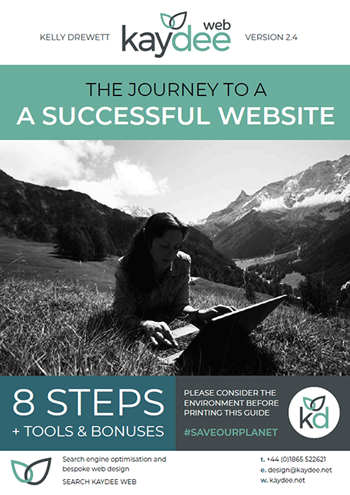What is the difference between organic SEO and PPC?
With more than 80% of users finding websites through search engines, businesses realise the importance of maintaining a strong presence in search engine results pages (SERPs).
There are two ways of getting listed on Google.
- Organic listing on Google
Using continuous search engine optimisation, in which your website, blog and social media are used to to gain high ranks, naturally. This includes on-page and off-page SEO. - Google AdWords (cost-per-click/pay-per-click)
The paid for adverts on Google, visible at the top of a results page above organic results. AdWords can also be optimised. Bid for keywords which display a result when searched. Pay only when the user clicks.
Both organic SEO and Google AdWords can get you on the first search results page for targeted key phrases.
How many people click on Google Ads
Evidence shows that internet users only click on paid adverts 5% of the time.
Very often organic results take a user to a more relevant destination than an advert, and Google users are learning. Many scan past the Google Ads at the top of the page.
Paid search results can, however, convert to a sale more easily because the landing page can be customised. At point of purchase 65% of people click the advert.
AdWord ads can also be customised to show at the right time along a users purchase path. So PPC often converts.
Organic SEO versus paid search results
The disadvantage with pay-per-click is that once you stop paying, the results disappear.
An organic listing stays on the results pages and can climb if you continue to provide good content.
Organic is the long term result. The more clicks you receive on these organic results, the further you climb. Organic SEO gets you more clicks, for less money and is partially permanent.
Natural listings are much harder to achieve, as Google protects its algorithm. Close attention has to be paid to results, and improvements made.

Instant search engine listing with Google AdWords
Pay-per-click can give instant results. Used correctly you can get immediate visibility for keywords you do not list for organically.
Fast results can be achieved to support the launch of a new product, showcase an event, special offer or increase engagement and branding. Yet bid prices may be high.
Conclusion on organic SEO versus paid search results
PPC should be used along side organic search engine optimisation and a social media strategy.
After the hard work of branding and trust building, ads that are highly targeted and optimised are likely to convert. AdWords is not where your online marketing plan should start, but are a fantastic addition.
Neither organic SEO nor PPC is particularly easy to do without experience. SEO is a process that takes a lot of time and effort.
What are your thoughts? Has PPC worked for you?

